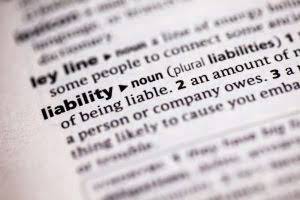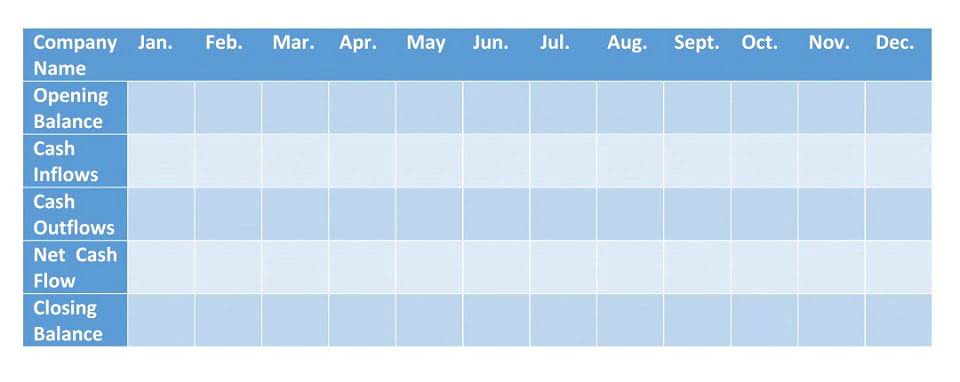
If you lower your salary, you might pay less tax now, but it could mean getting reduced Social Security benefits when you retire. Social Security benefits are calculated based on your salary, not distributions. As an S Corp owner, you pay self-employment tax, which is both the employer and employee parts of Social Security and Medicare.

Filing Business Taxes for an LLC for the First Time
Taking advantage of write-offs can help you reduce how much you owe. Whether you recently started a new business or restructured as an S-Corp, this guide breaks down everything you need to know to file confidently and avoid common mistakes. Figure out how much you need to live per month first, then divide by 2. You can take a distribution up to the amount of your salary any higher and you are asking for trouble.
- You still have to pay income taxes on the salary and profit that you earn.
- C corp profits are taxed when earned and then taxed again when distributed to shareholders as dividends.
- However, this doesn’t mean you can avoid FICA taxes entirely by not taking any salary.
- These benefits make the S-Corp especially attractive for self-employed people ready to grow smarter and save more in taxes.
- That’s because this structure essentially skips over the problem of double taxation that C Corporations face, where income is taxed at both the corporate and shareholder levels.
- Any S corp business owner can tell you S corp payroll taxes are complicated.
- As such, non-dividend distributions remain tax-free up to the stock basis.
Determine a Reasonable Salary for Shareholder-Employees
This means the owner would have to pay back payroll taxes on that income and any penalties the IRS imposes. The IRS requires that S-Corporation owner-employees pay themselves “reasonable compensation” before taking distributions from profits. You can income summary save money on payroll taxes by taking a relatively small salary and a relatively large amount of distributions.
File
A person could pay the $40,000 of wages in December as a $40,000 chunk or in a couple of $20,000 chunks in November and December. When these wages are paid, the $20,000 in income taxes could just be withheld then. This approach lets the shareholder-employee delay a tax payment without penalty or interest (one benefit). And this approach also lets the shareholder-employee withhold nearly the perfect amount in taxes since by the end of the year the taxable income should be easily accurately estimate (a second benefit).
- You are, after all, your best employee, so let’s make sure you get this right.
- Nelson CPA publishes this blog to help and encourage small business owners.
- S corps need payroll because the IRS needs to have a way to collect taxes from the business.
- Though the district court in Watson recharacterized significant distributions as salary, it permitted Watson to withdraw over $110,000 as distributions in 2002 and nearly $85,000 in 2003.
- She has a passion for helping small business owners do more with their resources via the latest tech and finance solutions.
- 28 The court agreed with the IRS expert’s computation of reasonable compensation of $69,584, $79,823, and $79,711 in 1997, 1998, and 1999, respectively.

We help you meet all filing deadlines, provide electronic copies of W-2s to your employees through our secure portal, and maintain the detailed payroll records you need for your annual tax return. Once you’ve officially become an S corporation, you’ll first need to decide upon a reasonable salary to pay yourself. Some of these factors include your qualifications, the size and complexity of your business, and the average rates of compensation others earn in similar positions with similar companies. I recommend completing the S-Corporation Reasonable Compensation Report to find the best salary for you.
- If you’re an owner and shareholder-employee, you can also take distributions in addition to your salary when the business is doing well.
- S corporation excise tax filers pay the minimum tax or calculated tax, whichever is greater.
- Federal pass-through status is a hallmark of S corporations, distinguishing them from other business entities.
- Following the steps outlined in this post will give you the basic roadmap you need to run your S Corp payroll effectively.
- You need to get an actuary, but you can throw a LOT of money into the pension annually, and it all goes in from corporate coffers without a dime of tax being paid on it.
- An S corp may pass income directly to shareholders without having to pay federal corporate taxes.
Payroll Taxes for S-Corporation Owners

If you own an S-corp that’s profitable and has more than enough cash to cover future expenses, it’s also possible to receive compensation by taking distributions. These are payments of earnings to shareholders, usually in the form of cash or stock. Fifteen years later, an oft-cited decision further clarified the IRS’s position on reasonable compensation.
- As a hybrid, pass-through tax entity, an S corp passes its business profits and losses through to its shareholders.
- Maintaining a clear distinction between wages (reported on a W-2) and distributions (reported on Schedule K-1) is essential to avoid IRS scrutiny and potential reclassification of distributions as taxable wages.
- The company may then treat the remainder of its profits as pass-through distributions to shareholders.
- You know where you want to go, but the path of how to get there is murky at best.
- Keep in mind that if you disburse money to yourself for shareholder distributions at other times throughout the year, you will categorize those payments as shareholder distributions rather than wages.
- Understanding payroll tax requirements is a critical component of fulfilling legal obligations.
Distributions, dividends and other compensation as wages
An S-corp also offers limited liability protection for personal assets. One key feature of an S-Corporation is its “pass-through” taxation, which means that the corporation itself is not subject to federal income tax. Instead, the company’s income, losses, deductions, and credits are passed through to shareholders, who report this information on their personal tax returns. For S-corps, this means you must ensure that you are paid compensation that is not so low as to avoid paying required taxes and is comparable to the salary of officers with your experience at similar businesses. Whether you’re processing payments for shareholders who work in the business or for your other employees, accuracy is essential for S-corp payroll. Paychex’s comprehensive payroll services help you calculate Social Security, Medicare, federal and state unemployment taxes, and income tax withholdings correctly and on time.

Additionally, maintaining precise records of payroll transactions provides a reliable reference point for tax preparation, helping to avoid discrepancies and potential penalties. Compliance with state payroll tax requirements often extends beyond merely withholding state income tax. Employers may also be obligated to manage unemployment insurance, Catch Up Bookkeeping disability insurance, and other state-specific withholdings.
S corporation employees, shareholders and corporate officers
If through payroll withholding you’ll only pay $3,000, you’ll want to pay another $3,000 annually, or $750 a quarter, in quarterly estimated tax payments. An S corporation (also called a Subchapter S corporation) is a small corporation that has elected to be taxed much the same as a partnership by the IRS. An S corporation is a pass-through entity—income and losses pass through the corporation to the owners‘ personal tax returns. One of the biggest reasons is that an S corporation can save a business owner Social Security s corp payroll and Medicare taxes. Also, if the S corporation owns a building or other real property, property taxes are required to be paid on this property. For example, say someone owes in total $20,000 in taxes on $40,000 of wages earned and a $60,000 profit share.